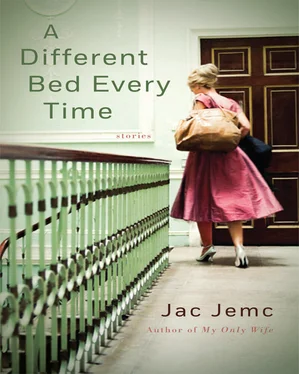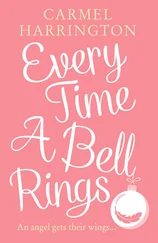The father read that animals that breathe more slowly — pythons, elephants, tortoises — live longer. The family begins losing sleep in the attempt to breathe more and more slowly, and so even their breath becomes strange to them. They slow their heart rates by seventy-five percent. They hibernate awake.
The parents read to the child about everything in the hopes of telling him the one thing he needs to know. “Breathing is one of the few things we can both control and not about our bodies. That means, it happens without our thinking about it, but we can also think about it and change the way it happens.”
The child is familiar with things that he can’t stop, so he listens carefully.
The father reports, “Conscious breathing is found in many forms of meditation and exercise and performance: yoga, swimming, vocal training, the playing of musical instruments. You can change your unconscious efforts slowly.” The mother caresses the back of the child’s head and says, “Unconscious breathing starts back here in your brainstem.”
The child, trying to wrap around this information, asks, “So I could stop my breath? I could end?”
The parents look at each other nervously, want to run to another room and punch the other’s lights out for thinking this was a good idea. Instead they silently agree what a privilege it is to live so closely to this pocket of wonder they call their son.
The father says, “No. A person cannot just voluntarily stop breathing. Your reflexes would cause you to breathe or you would lose consciousness and your body would breathe for you.”
The mother changes the subject quickly. “Hippocrates thought you could determine a person’s health by their breath.”
When the doctor comes in with his brain full of news and his mouth full of reassurance, the child begins to cry and his color begins to change, but no one notices, for they’re all torn apart by the prognosis. The child falls off into a forced sleep, the pain having stopped his breath. The parents weep all the more loudly, so they don’t notice one missing voice, one absent pattern of inhales and exhales. The doctor notices the child’s color only after he has already stranded himself in a faint.
The doctor uses complex words there are easier translations for: cyanosis, syncope, hypoxia, postictal. There is so much that the child’s body needs energy for, but not this education.
The child awakes an hour later with more tears. He can remember all of it. He wishes for forgetting. He asks them to turn the sun away.
When they all fall down into sleep again, the nurses arrive in fleets, carefully watching over the family, keeping the hushed, unspoken ritual of vigilance. The elders wake before the child, feeling negligent and whispering their wishes for rescue as if hidden by dark branches.
The flame of the child is dying out. Words spread quickly as they make their way down to the valley of the cafeteria. The parents torch themselves with coffee, uttering on the view from every window. The mother hisses and spits, and with time they begin to compose themselves with the tenderness necessary to return to the child. They hike back up the floors, calibrating their proximity.
Above the gentle breeze of monitors and ventilation comes a knock at the door, almost impossible to hear. And again, topsy-turvy news. And again, the mother misunderstanding herself. And again, the contemplation of their little stamp of outside world beyond the glass of this awful place. And again, new arrivals of cheery flowers. But the summoning happens all too quickly. What little potential they thought was theirs is rioting.
The loud will soon perish for the quiet. The mother will croon out the happiest songs, transubstantiated to doleful lullabies. She will think of the nest she’s formed in the left ventricle of her heart just for the child. The child will grow lighter than an inflatable beach ball. The mother will squeeze him to her chest, afraid he might be carried away.
“There is time for one more story,” she tells him, and she squeezes herself on the bed beside him as the child drifts away in the current. In his dream, a voice tells the child to be wary of walking down the chalk path for fear of brushing it away. “Like breadcrumbs,” says the voice. “Be fearful of erasure.” The child refuses the fear and leans into the wind. A glowing magnificence, he reflects everything. The sun cups him so pointedly that even his eyelids don’t hide the light. Those around him can hear his breath curving in coils of alarm, but the child has been rendered graceful.
As people get older, their lives pass at an ever-dizzying pace. People close themselves off with certainty. People laugh less and less. But when death snarls so close and hungry behind a young child, the child, in all his slow-motion time and openness, might invite the wolf in. There is room for new kinds of friendship and new shapes for hope.
For everyone else, the end is full of fervor and calamity. The parents try to flex reality. They try to stretch life a little longer, like the moon in the morning. But then pressure. But then sitting down to play a piano with keys arranged backwards. Impossible anger. Radiant denial. Resounding disorder. Time will teach the way, but first everything will have to be unlearned. The hammers will hug the strings; the strings will shake free.
Pochard’s eyes buckle with the sight of scratches in the wall like bent nails. Bent nails covering the floor like broken fingers. What Pochard needs is a dead pulse. What Pochard says sounds the right way.
Pochard waits with a camera hung round his neck, can feel the hard streaks on the side of his face left behind by a slap, the spin and drag of being watched. What he wanted was the shame of alarms sounding, the orgasm of suggestion. Pochard wanted to feel trapped, like the tight water of a still lake. He wanted to feel pulled firm, like the snap of a snakeskin belt. Instead, he felt full of half-light and the patience of waiting for the right time to speak up.
“Tell me later,” his lover would say. “Shallow and easy.” But he knew he had been let go when he came upon the simple scene he did. She had dented their connection. In this small house that crouched on a block of mansions, his life had been sold out from under him. His mind was loose with mothers and thieves, either offering useless advice or clearing him out.
He could think of only his lover’s knobby teeth, shining broad through her smile now. He thought of children and powder kegs. He was hungry, but steered and muttered that feeling away.
He thought of when they’d met in the church hall, of the way her hips had hauled and bossed their way over to him. Of how they mixed their glances and how the Savior careened and sloped in his mind, trying to get him back on track. He had breathed in the scent of her and thought of burning candles and handfuls of pennies. He repeated her unusual name in his head: Grebe, Grebe, Grebe. Like the firm beeps of a heart monitor.
He avoided cracks in the sidewalk on his way home, like he believed again. He was thirty-eight, and he’d almost given up. He thought of her fluid wrists, which had curled like ribbon against scissor blades. His face, he was sure, had crawled with surprise as her eyes imploded into their sockets each time she blinked.
Once they had one another, they left the rest behind. They made a ritual of each other. Grebe proved difficult early on and Pochard reveled in it. She lied and cried, and he had dreams of Lady Macbeth. He tried to tune her out. He left sticks inside her mouth as placeholders, spread roads out across her body, eyed the trails of gathering tattoos like a shimmering gas leak, and when that wasn’t enough, they found new habits.
Читать дальше












